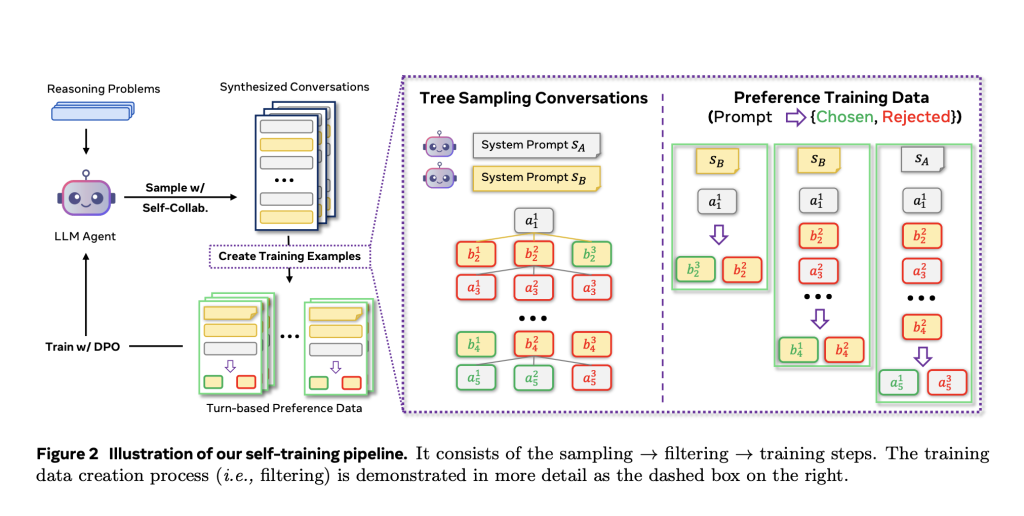
Enhancing Collaborative Reasoning with AI: The Coral Framework
Introduction
Meta AI has launched a groundbreaking AI framework known as Collaborative Reasoner (Coral), aimed at improving collaborative reasoning skills in large language models (LLMs). While LLMs excel in single-agent tasks, their ability to engage in multi-agent reasoning—essential for tasks requiring collaboration—remains limited. This document outlines how Coral addresses these challenges and presents practical business solutions for leveraging collaborative AI in real-world applications.
Understanding Collaboration in Language Models
Traditional LLM training often focuses on isolated outputs, disregarding the essential social dynamics of collaboration. Key skills such as negotiation, perspective-taking, and assertiveness are critical in many professional environments, yet they are not adequately represented in current training models. Coral’s introduction redefines the process, allowing agents to interact dynamically, solve problems, and reach consensus through natural dialogue.
Challenges in Collaborative Reasoning
- Lack of high-quality, multi-turn dialogue datasets for reasoning tasks.
- Inadequate modeling of social interactions in existing training methods.
- Need for scalable solutions that support collaborative outputs.
Coral Framework Overview
The Coral framework is designed to evaluate and enhance collaborative reasoning. It transforms traditional tasks into multi-agent, multi-turn challenges where agents engage in conversations to arrive at solutions. Coral encompasses five domains: mathematics, STEM multiple-choice, and social cognition, providing a robust evaluation environment for collaborative problem-solving.
Key Features of Coral
- Multi-Agent Collaboration: Agents work together, challenge each other, and negotiate to find solutions.
- Custom Evaluation Metrics: New metrics measure agreement correctness, persuasiveness, and assertiveness.
- Self-Collaboration Approach: Enables a single LLM to generate training data by simulating conversations.
Supporting Infrastructure: Matrix
To scale data generation efficiently, Meta introduces Matrix—a high-performance framework that supports various backends and utilizes advanced orchestration tools like Slurm and Ray. This infrastructure enhances data throughput capabilities, achieving up to 1.87 times higher performance than competing systems.
Empirical Results and Performance Gains
Coral’s implementation has led to significant performance improvements. For example, models like Llama-3.1-8B-Instruct show a 47.8% enhancement on specific tasks after employing Coral. Noteworthy is the consistent generalization across various unseen tasks, demonstrating that collaborative training positively influences performance in diverse contexts.
Business Applications of Coral
Organizations can leverage Coral’s capabilities to enhance team collaboration and decision-making. Here are actionable steps businesses can take:
- Assess Collaboration Needs: Identify processes and areas where AI can improve teamwork and problem-solving.
- Implement Gradually: Start with small projects to test and refine AI implementations before broader application.
- Track KPIs: Establish key performance indicators to measure the impact of AI on business outcomes.
Conclusion
In summary, the Coral framework represents a significant advancement in the field of collaborative reasoning for AI. By redefining how large language models are trained to engage in social interactions, Meta AI is paving the way for more effective AI solutions in business settings. As these technologies evolve, organizations that embrace collaborative capabilities will be better positioned to thrive in competitive environments.


























